Nowadays, discussing David Lynch's movies is nothing new. Some people use Jacques Lacan's, Sigmund Freud's or even Carl Gustav Jung's theories to analyze films shot by shot, and naturally some people use detective methods to search for clues in the films to solve the stories, decrypting one clue after another in order to satisfy the primitive curiosity of human beings to solve mysteries.
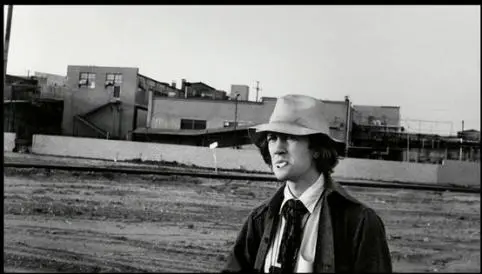
1. Dreams Constructed by David Lynch in Eraserhead
Behind the mysterious movies, David Lynch is like a magician, manipulating the characters' movements and psychology delicately, and creating a wonderful and weird atmosphere. No, not so much a magician as a dream maker. "Dream" often appears in the theme of Lynch's films. Today, I want to analyze David Lynch's image style from Eraserhead, which is like a modern apocalyptic nightmare.
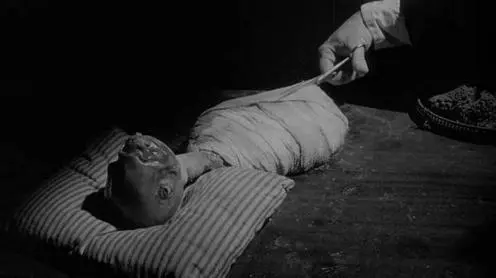
Dreams are David Lynch's image code, because he's obsessed with the dark side of things, with "sin under the sun". His first feature film, Eraserhead, was hated by critics, loved by hippies and young people, especially Kubrick.
It is full of the darkness of industrial society and the perversion of interpersonal relationship. A woman gives birth to a deformed baby, and his parents cut open the skin of the roast chicken at home with sticky liquid flowing out. Henry, the protagonist, is infatuated with the "lady living in the heating radiator" and witnesses a forced copulation. Finally, he has to cut open the body of the strange baby, just like cutting the stiff skin of the roast chicken.
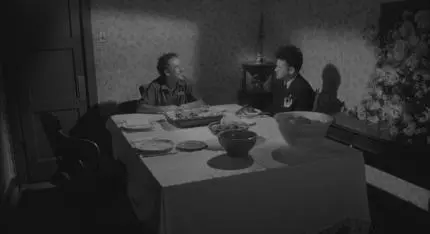
The characters in Eraserhead are simple, yet they all consistently experience some kind of perversions. For instance, the perversion between the parents' strange tone and the roast chicken, the perversion between the wife and the "lady living in the heating radiator", the perversion between Henry and the strange baby. This kind of alienation and division of human beings is not only in images, but also in metaphors.
The "lady living in the heating radiator" is the perfect embodiment of this kind of metaphor. She is hidden as a symbol of Henry's desire, appearing on the grotesque stage, and at the same time, she is the witness of the birth of evil (A.K.A. the strange baby).
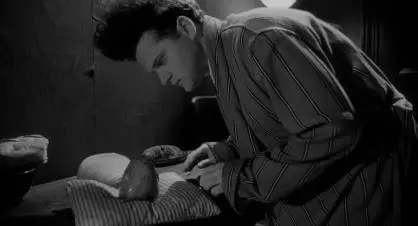
Finally, Henry's lost head is taken to the pencil processing factory to be turned into the eraser head of a pencil. This processing is also kind of a return. It is the reuse of the human body through factory, assembly line, machine, and the wonderful crystallization of modern industrial civilization. Let the nightmare be replaced by industrial products, and make the heads into eraser heads that can only erase things, but can not leave any traces. This is mainly the idea of "the perfect industrial society", relying on the circular force brought by machinery to eliminate the nightmare that human beings can not get rid of, at the cost of turning their heads into eraser heads.
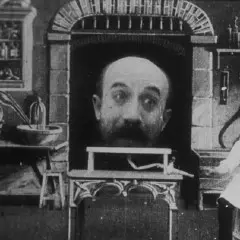
If we focus on the present, we will find that not only industrial civilization, but also the commercial civilization and network society brought by it are all the same as the pencil processing factory in Eraserhead. Under the banner of "dream", they create a vertiginous landscape, which actually eliminates the dream itself and turns everyone into a piece of eraser head isolated from each other.
2. Language is the demon of David Lynch's films
From the perspective of this film, language is weak for Lynch's images. In his films, language is replaced by silence, and visualization is replaced by spirituality. Language here refers not only to the dialogue in the script, but also to the possibility of communication.
Hollywood movies of the same period are assimilated by the mature industrial system-more wonders, slow shots, long shots, close-ups, precise object placement, multi-camera positions, appropriate push-pull, narrative golden rules. Mature films are neat and smooth, but they are homogeneous and boring, and they lack some kind of "deformation" and "distortion".
Therefore, in Eraserhead, silence is far more important than words. David Lynch is good at using shots and characters, as well as special effects, to build a bridge of inner spiritual communication. The dreams he constructs in the film have a wonderful balance, not so ambitious, but interesting.
In this way, language is the eternal demon films have to fight against. On the one hand, language is used to expound films as a bridge to communicate with the audience, and becomes an important part of writing film history. Different directors will establish different grammar systems. On the other hand, it appears to be decadent, as a means of rulers, manipulating the audiences' interests, preferences and excitement so that every moment of joy in the images comes from a poor puppet show.
3. Eraserhead is like a poem
David Lynch's films have a grammar system of their own, and he dedicates all his best shots to those silent and free moments. These moments remind me of poetry, and sometimes music. Eraserhead is like a poem that only Baudelaire and Edgar Allan Poe could write. When I re-examined David Lynch in a poetic way, I got to really appreciate the beauty of the images.
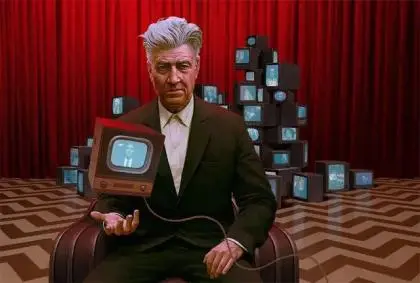
That’s all for today, let me know if you too love David Lynch's style or not!


 Log in
Log in

No comments yet,
be the first one to comment!